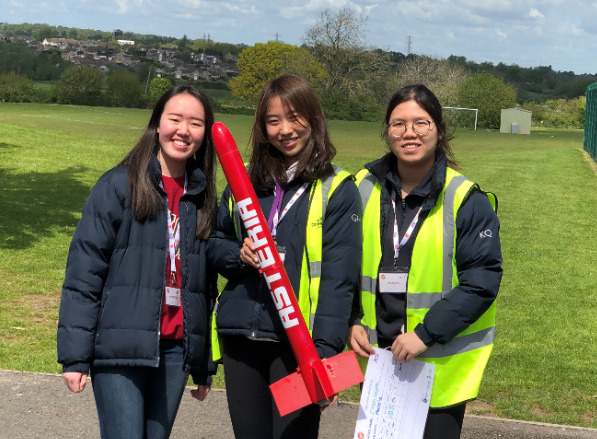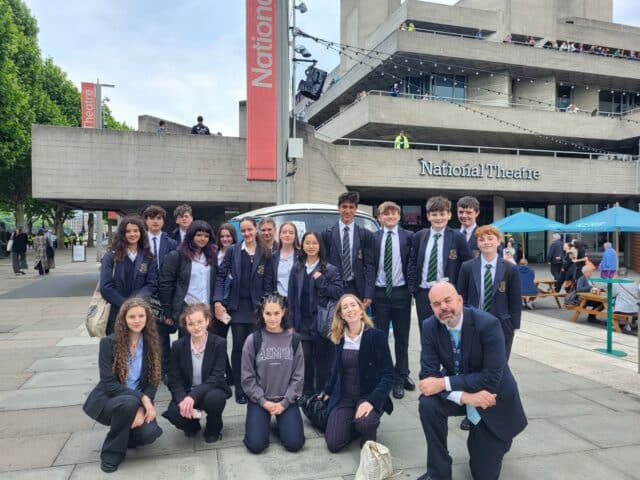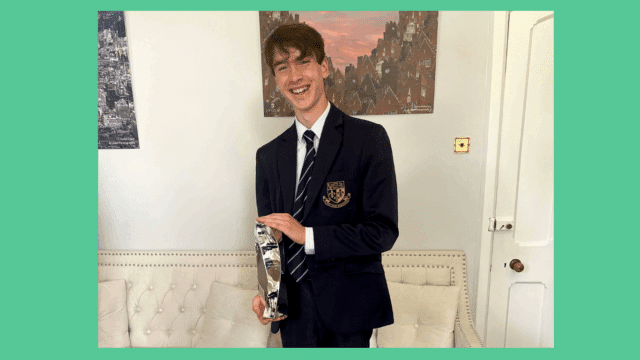Epsom’s STEM teams have reached two national finals in as many weeks, representing the College at the UK finals of the European Space Centre CANSAT Challenge and the national finals on the UK Rocketry Competition. This is a fantastic achievement for the pupils involved, and cements Epsom’s strong reputation in the sciences.
European Space Centre CANSAT Challenge
As part of the CANSAT Challenge, Alex Ukrasin (H) and Elliot White (C) represented themselves, Rory Cornelius-Smith (H) and Thomas Cross (Rn), by presenting to a panel of experts at the National STEM Learning Centre in York.
The competition is open to all schools and requires students to fit all the subsystems of a satellite inside a soft drink can. Teams then have to complete two missions: the first to collect and transmit air temperature and pressure data at least once a second by means of radio waves; and a second mission chosen by the teams themselves. Epsom performed strongly at the finals but just missed out on securing top spot, which would have seen the team progress to the European finals in Italy in June.
UK Rocketry Competition
Two teams from Epsom – Team Asteria and Icarus – reached the finals of the United Kingdom Rocketry Competition.
The competition is open to all schools, colleges and youth groups across the UK, and requires teams to design, build and launch a model rocket with a fragile payload. The rocket must reach a set altitude, for a specific duration. Teams compete in regional heats, with the best 24 teams from around the country progressing to the finals.
The competition – that requires students to work independently by segregating them from their teachers – saw both teams show collaboration, co-operation and critical thinking in order to progress to the next round.
Team Asteria – comprised of Xu Xu (Cr), Kelly Qiu (Wh) and Gina Hooton (W) – performed particularly successfully, coming third overall. Their best flight fell within four seconds of the required flight time and they came within one foot of the target altitude of 856 feet.
Due to the unfortunate high winds and rain they could not launch on the day so were judged on their logbook and a 10-minute presentation in which they had to explain the design process, research and development and how they arrived at their final design.
The boys’ team, Team Icarus – represented on the day by Thomas Cross (Rn) and Alex Ukrasin (H) – also enjoyed success and made the grand final despite a rapid unscheduled disassembly during their first flight, which forced a major rebuild. The boys were unlucky not to place in the top five but were highly commended for their presentation.
Both teams received further commendations from the judging panel on their logbooks, which were described as the best they had seen, and Epsom has been asked to submit these for use as exemplar material in the future.





